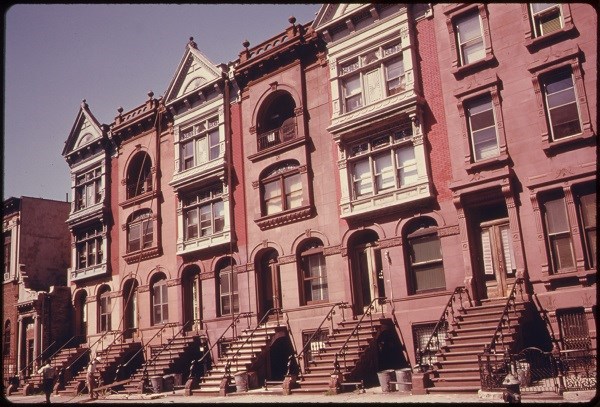In an effort to help struggling New Yorkers through the COVID-19 pandemic, Governor Andrew Cuomo announced on Thursday an executive order allowing renters to apply their security deposits towards next month's rent.
The measure provides a sigh of relief for many who are worried about their housing security. But for those who are already two or three months behind and with no income, the executive order still falls short.
The Renters Relief Plan requires landlords to accept security deposits as June's rent, and requires renters to pay the security deposit back in full within 90 days, or it gives them the option to sign into a low-cost monthly insurance plan for the rest of their lease that would cover any costs of damage to the apartment.
The plan would immediately put around $8 billion back into New Yorkers pockets during a time when many families are struggling to make ends meet, as the city faces record unemployment with the COVID-19 pandemic. The order also bans fees for late or missed payments until August 20.

Housing affordability advocate Ankur Jain has been instrumental in the plan and is a cofounder of Rhino—a company providing insurance in place of security deposits to make renting more affordable. He said many millennials were already living paycheck to paycheck before the coronavirus pandemic hit, and the money could be life changing for people.
The idea was to give everyone a one-month buffer "to get back on their feet, sort out their finances, and not fall behind because of the current crisis," he said.
If renters chose to enter an insurance plan they would be required to pay a monthly fee that was nonrefundable for the duration of their lease, which would cover any damages when they moved out. Jain said fees with Rhino could be as low as a few dollars a month, but were on a case-by-case basis, and he hoped the measure, which was being picked up by states across the country, would become permanent.
Jessy Edwards, 30, rents a 2-bedroom apartment in Bushwick with two roommates and said a low monthly insurance plan sounded like a great option, given how hard it was to scrape together the money needed for a lease. But, she said, the new plan, although a good stop gap for many, was just a bandage over the current crisis.

"New Yorkers who are in serious financial hardship right now, especially those who aren't eligible for unemployment and aren't working, will be living month to month, day to day," she said. "So they pay June with their security deposit, then what? Will they really be able to make enough in June to cover July's rent?
"I just hope landlords are open to negotiating on longer-term solutions like payment arrangements with struggling tenants, because the law isn't doing much to protect those who can't see themselves able to pay August rent."
She said although it was a complex issue, the worst thing that could happen was for people and families to become homeless because of the impacts of the pandemic. She thought measures should be taken to match tenants struggling to pay rent with relevant social and legal groups that could help with resources.
She said switching the security deposit system to a monthly insurance fee was a really good option for renters, and one she would take it up at the start of a lease, given the many difficulties tenants can have recovering that deposit. "As a tenant you feel powerless to fight these things, it's like getting your security deposit ravaged is just part and parcel of renting," she said.
Gary Fishkop, who was born and raised in Brooklyn and rents an apartment in Bed-Stuy, thought the plan was a good idea, but questioned whether landlords would be supportive. Fishkop, who also owns a restaurant in Bushwick and rents the building, said the commercial real estate market was also going to be hugely affected.
"For the most part, I think commercial landlords understand the unique position their tenants are in and are giving concessions," said Fishkop. "But for some restaurants, rent concession won't be enough to make it through unfortunately."




